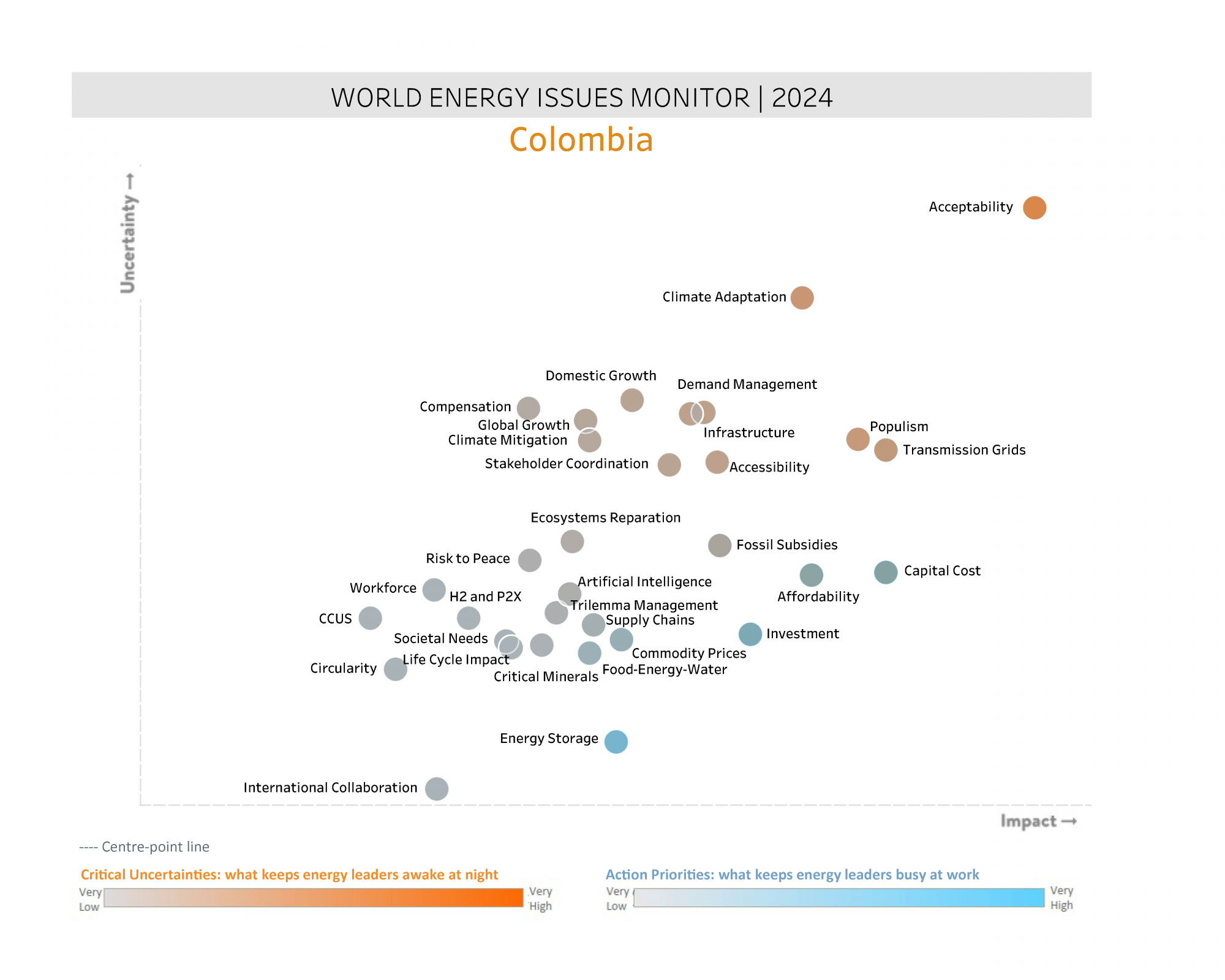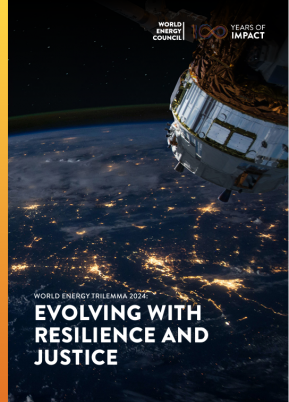The Colombian World Energy Council Member Committee aims to study and implement of projects aimed mainly at the rational use of energy resources in all its aspects, in order to promote sustainable energy development. These projects consider the production, transportation, distribution, marketing and use of energy for maximum benefit, taking into consideration global trends in regulation and minimizing environmental impacts. COCME’s mission is to promote the sources and sustainable use of energy to provide greater benefits for people.
José Antonio Vargas Lleras is the World Energy Council’s Vice Chair for the Latin America & Caribbean region and also serves as Chairman of the Colombian Committee of the Council. Since 2006 he has been Chairman of the Board of Directors of Electricity Distribution Company CODENSA and of Electricity Generation Company Emgesa, subsidiary firms of Enel-Endesa in Colombia. Dr Vargas Lleras has been Chairman of the Energy Commission for Regional Integration (CIER) and has held several managerial positions in many companies in the Colombian electric sector including the post of CEO of the Bogota Power Company. Professionally trained as a lawyer, and also a university professor, he has served as an Ambassador to the European Union and the Permanent Representative of Colombia to the World Customs Organisation.
Daniel Felipe Diaz Toro serves as Executive Secretary of the World Energy Council, Colombia and is in charge of the organisation. He holds two undergraduate degrees and two master's degrees. He has a Master's in Business Administration MBA from Eafit University and another in Energy Transmission and Distribution Engineering from Universidad Pontificia Bolivariana. He is an Electrical Engineer, as well as an Electronic Engineer from Universidad Pontificia Bolivariana. In addition to his role as Secretary of the Colombian Member Committee, he is a Professor of Energy Sustainability, R+D+I in the energy sector and Smart Grids.
Energy in Colombia

In Colombia, with the new Government in office, a renewable capacity target of 6 GW by 2026 has been established. From January 2023 to April 2024, 1,585.29 MW have been installed, accounting for 27.7% of the goal (UPME). However, despite progress, the most critical uncertainty identified unanimously by leaders in the Colombian energy sector is acceptability. This reflects concerns over delays and permitting issues, including connection point delays, delays in prior consultation, and the absence of regulatory response times or compliance with legal terms. Such challenges not only affect generation projects but also impact energy transmission infrastructure and projects, underscoring their significance as critical uncertainties in Colombia.
To address climate change adaptation, Colombia must diversify its energy matrix. Currently, over 60% of the country's electricity generation relies on hydroelectric power, leaving it vulnerable to climate change impacts. Strengthening energy supply requires diversifying sources to avoid reliance on a single option and ensure resilience against climate-related disruptions.
Priority action items include fostering greater cooperation between the private and public sectors to reduce uncertainties and improve capital cost indicators in energy projects. Additionally, increased investment and the smooth implementation of projects under construction are vital to augment supply in the energy matrix, enhancing accessibility to energy services for industries and citizens alike.
Colombia is actively exploring energy storage projects and distributed energy resources, leveraging local resources to optimize network efficiency and empower various energy communities.
In conclusion, Colombia's environmental commitments are clear and ambitious, posing challenges and risks in achieving energy trilemma goals. Maintaining energy equity and affordability is crucial to ensuring that the energy transition does not hinder economic growth or limit access to services for the population. Efforts are also needed to ensure that the integration of new capacity from cleaner sources does not compromise energy security and stability.
Acknowledgements
Colombia Member Committee
Downloads

Colombia World Energy Trilemma Country Profile 2024
Download PDF
World Energy Trilemma Report 2024
Download PDF
Colombia Energy Issues Monitor 2024
Download PDF











